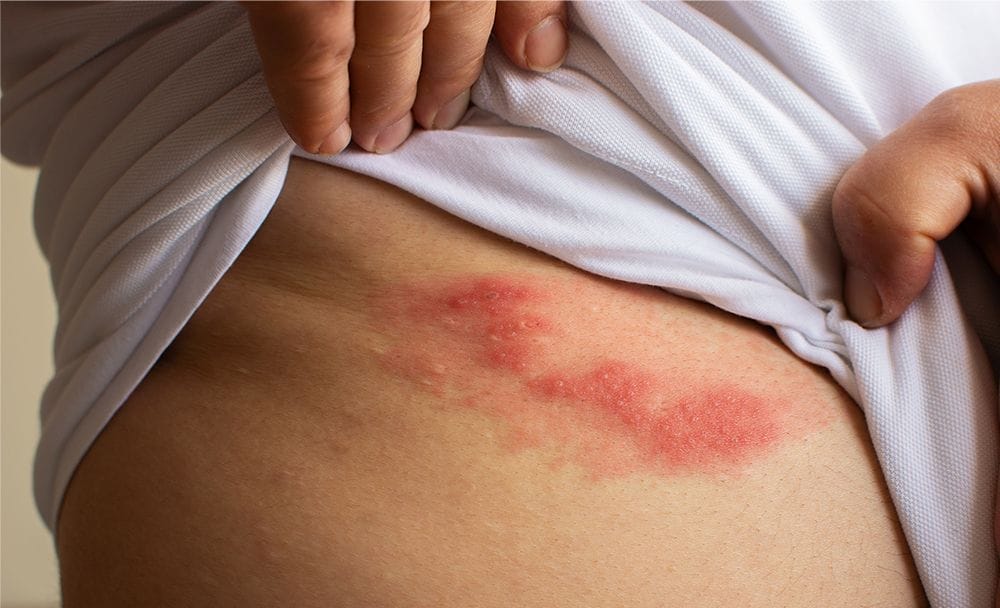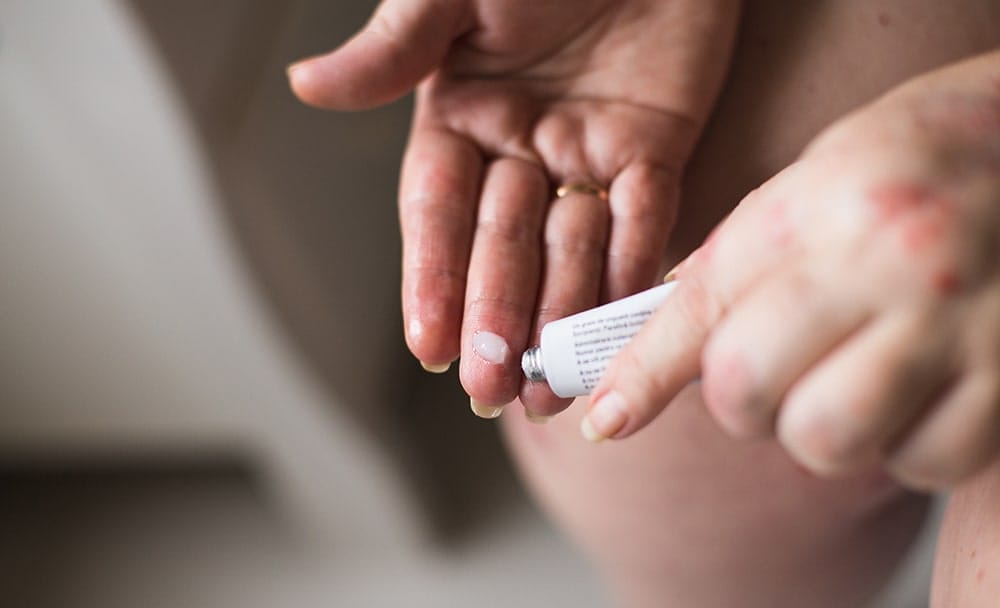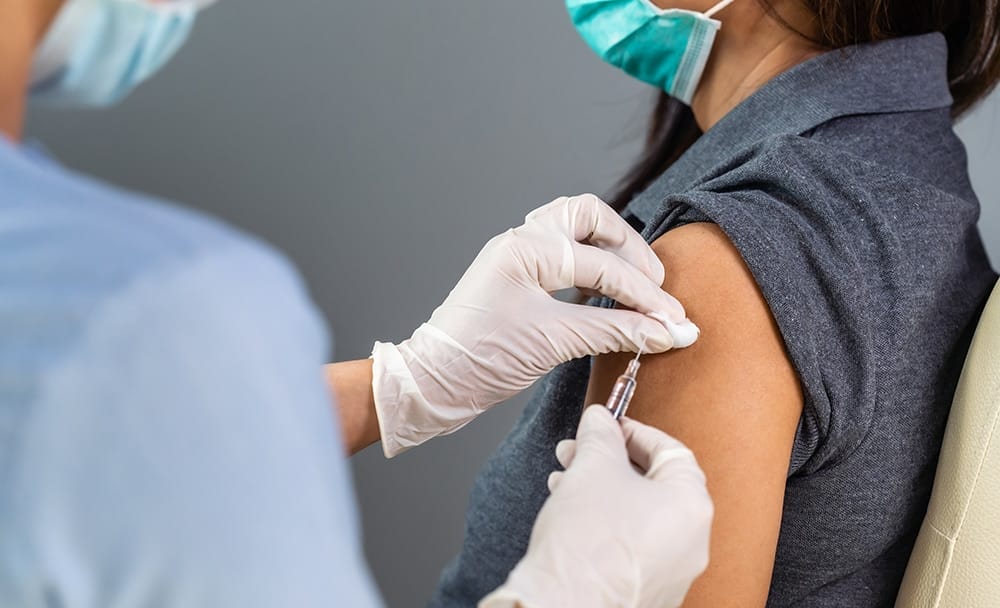
Shingles, also referred to as herpes zoster, is a painful viral infection characterized by rashes. It is a common skin and mucous membrane disease caused by the infectious varicella-zoster virus (VZV), the same virus that causes chickenpox. To explain what is shingles, after a person recovers from chickenpox, the virus can remain dormant in the nervous system for years and reactivate later in life, manifesting as painful vesicles following a dermatome, thus leading to Shingles. The condition is more commonly seen in the aged population and the immunocompromised. [1] In this article, we will explore the shingles meaning, shingles symptoms, causes, shingles treatment, and prevention of Shingles.
What are the symptoms of Shingles?
Shingles typically begin with a burning or tingling sensation on one side of the body, often in a band-like pattern. This is followed by blisters filled with fluid, burning and shooting pain, itching, tingling, numbness in the skin, headache, chills, fever, malaise, fatigue, or an upset stomach. [2] While the shingles symptoms may be mild for some, for others, it may be more pronounced, with shingles rash [3] commonly appearing on the torso as well as the face, eyes, or other parts of the body. The pain associated with shingles can be described as sharp, stabbing, shooting, burning, throbbing, or tender. [1]
There are essentially three stages of Shingles:
(1) Prodromal: Manifests in fever, general malaise, pain, and tenderness
(2) Acute: There is a linear papular or vesicular eruption of the skin or mucosa supplied by the affected nerves
(3) Chronic: Severe pain of abrupt onset and hyperesthesia over a specific dermatome accompanied by fever, headache, myalgia, and lymphadenopathy [5]
What are the causes of Shingles?
To understand what causes shingles, you must know that they are caused by the re-awakening and re-activation of the varicella-zoster virus, which remains dormant in the nervous system after a person recovers from chickenpox. [2] It is still unclear why the virus reactivates in some individuals but remains dormant in others. However, certain factors may increase the chances of developing Shingles. These include:
- Mental or psychological strain
- Short-term or long-term health conditions
- Contact with the virus
- Taking medications that weaken the immune system
- Having a cancerous/malignant condition [4]
How can Shingles be treated?

Prompt medical intervention is crucial in managing Shingles and minimizing complications. [2] The primary shingles treatment involves antiviral therapy, anti-inflammatory drugs, and analgesics. [1] Antiviral medications such as valacyclovir are given within 72 hours of the onset of the vesicles to reduce acute pain and the duration of chronic pain in patients. Opiate or non-opiate analgesic shingles medication are given to control the pain, and in some cases, corticosteroids are also given to reduce pain. Other prescribed shingles treatment medications are topical lidocaine, gabapentin, pregabalin, opioids, tricyclic antidepressants, and anticonvulsants. [1]
How can Shingles be prevented?

Vaccination is the best way to prevent Shingles and its complications. The varicella-zoster virus vaccine, Shingrix, commonly known as the shingles vaccine, is recommended for individuals aged 50 and above, especially if they have already had chickenpox, the chickenpox vaccine, and even if they have previously had shingles. [2] The vaccine contains a component of the varicella-zoster virus, and it primes the immune system to recognize the virus if it reactivates. It helps boost the immune system’s ability to fight off the reactivation of the virus, reducing the risk of developing shingles and PHN. [1]
FAQs
How can Shingles disease be prevented through lifestyle measures?
Maintaining good overall health by practicing a healthy lifestyle, managing stress, and getting adequate rest and exercise is important. Spend time in the fresh air, pleasant atmosphere, and a place with proper sunlight and water, wear loose fitted clothing, and maintain clean and hygienic surroundings. [7]
How can Shingles disease be treated naturally with Ayurveda?
The fundamental treatment plan for Shingles in Ayurveda includes a balance of the Doshas, that is, the Vata and the Pitta which gets vitiated and there is a predominant Tridosha as well as vitiating Twak, Rakta and Mamsa Dhatu. Using an Ayurvedic Lodramsevyadi Kashayam, Lasunadi Gutika, or Kottamramachadi Churnam can help relieve the pain and improve the condition. [6]
Is shingles contagious, or is it safe to be around someone with the disease?
To answer is shingles contagious, it is so until the last blister has dried and scabbed over. Hence, it is advised that people who have contracted the disease should keep the shingles rash covered, should not touch or scratch the rash, and wash their hands often to prevent it from spreading further. The patient ceases to be contagious once the rash has developed crusts.
Conclusion
The viral infection, Shingles, is quite painful and is caused by the reactivation of the varicella-zoster virus. It presents with a distinctive rash and can be accompanied by various symptoms. Prompt treatment with antiviral medications can help alleviate symptoms and prevent complications such as PHN. Vaccination is a vital preventive measure for individuals aged 50 and above. By understanding the shingles meaning, shingles symptoms, causes, shingles treatment, and prevention of shingles, individuals can take appropriate measures to manage this condition and reduce its impact on their health and well-being.
Disclaimer:
This article is written from a health and wellness perspective and is not medical advice. Kindly seek the help of a certified medical practitioner before initiating any treatment.
References:
















